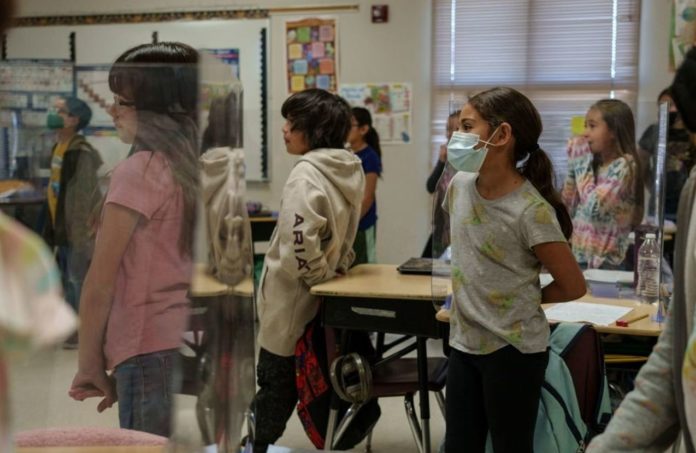A study led by Duke Health researchers found that COVID-19-infected children produce spontaneous circulating antibodies that last at least four months.
A study of 69 children screened at Duke Health indicated that children and adolescents with mild to asymptomatic cases of COVID-19 had significant antibody responses up to four months after infection.
Children and adolescents who had previously acquired COVID-19 produced antibody responses capable of neutralizing the SARS-CoV-2 virus, according to a study published in the journal JCI Insight. These responses were also equivalent to or better than those seen in adults.
“The study shows that children who’ve had mild infections or even those who did not have any symptoms, develop an immune response that will likely provide some protection against future infections,” said co-lead author Jillian Hurst.
The Duke Human Vaccine Institute researchers assessed SARS-CoV-2-specific immune responses in 69 children and adolescents ranging in age from 2 months to 21 years old. The average age of the participants was 11.5 years, with 51 percent of the participants being female.
The researchers examined antibody responses in children and adolescents with asymptomatic and mildly symptomatic SARS-CoV-2 infections and discovered that the antibody response was unaffected by the presence of symptoms, and that SARS-CoV-2 neutralizing antibodies were detectable in the majority of participants four months after infection.
The immunological responses of the children were also compared to those of adults. At two months and four months following acute infection, they discovered that all children, regardless of age group, had equivalent or slightly greater levels of antibodies than adults.
“Most studies of the immune responses of children to SARS-CoV-2 have focused on patients hospitalized for severe COVID-19 or multi-system inflammatory syndrome in children (MIS-C), or have assessed immunity only during acute infection,” added the authors of the study. “Our study provides important information that SARS-CoV-2-specific immune responses, regardless of disease severity, may decline over time more slowly in children and adolescents.”
The findings show that immunizing young children against COVID-19 could provide a similar or greater level of protection than immunizing adults.
Antibodies against SARS-CoV-2 continue to evolve in adults up to a year after infection, according to a study published in JAMA. Vaccines boost the immune system’s reaction.
- Participants who had not been vaccinated kept most of their plasma antibodies against the virus’s receptor binding domain (RBD), and their plasma exhibited similar neutralizing power against a nonreplicating virus produced with the SARS-CoV-2 spike protein, compared to 6 months before. Their anti-RBD memory B cells were only slightly less than at the previous visit, and they had evolved to produce a larger and more powerful variety of antibodies. Their plasma, on the other hand, displayed reduced neutralizing activity against the variations B.1.1.7 (alpha), B.1.351 (beta), B.1.526 (iota), and P.1 (gamma), with the beta variant losing the most activity.
- Those who had received at least one dose exhibited significantly higher plasma anti-RBD antibodies and an approximately 50-fold increase in neutralizing activity compared to those who had not been immunized. Vaccination, according to the study, enhances the memory antibodies that form after an infection, resulting in a “outstanding response.” Neutralizing antibody levels against the mutations in this group exceeded those seen in other investigations in infected or fully immunized people. This is backed up by more study. Two teams from North America and the United Kingdom recently published papers in Science revealing that a single dose of an mRNA vaccine significantly boosts the immune response to SARS-CoV-2 variants in patients who have already been infected, a phenomenon dubbed “hybrid immunity” by some.
Image Credit: Getty
You were reading: Natural COVID-19 antibodies last more than three months for children – says study
